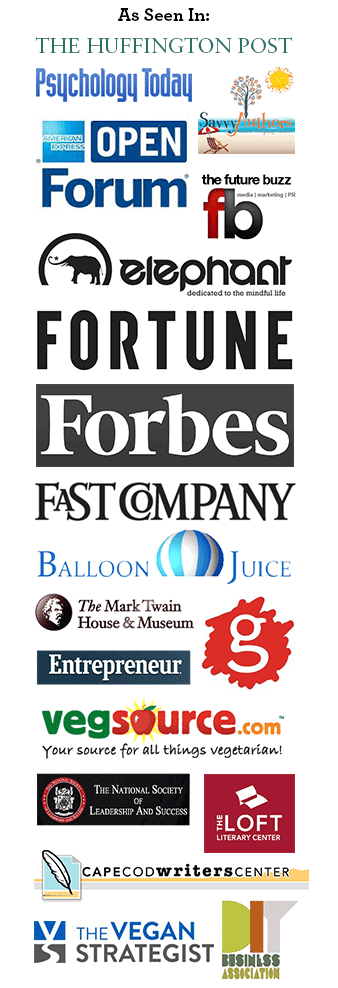How to Stop Hoarding Your Work
Procrastination is disempowerment, and there are many circumstances, situations, conditions, and other obstacles that can disempower us. But how, exactly, do these disempowering obstacles cause procrastination? And how can the situation be remedied? To answer those important questions, you need to first understand that every creative and intellectual act—including, of course, your schoolwork—is really an act of self-expression, self-assertion, and self-advocacy. Also that, whenever you hand in or otherwise share your work—with your professor, classmates, social media audience, or elsewhere—you’re revealing yourself at a pretty deep level. (Your thoughts, ideas, values, voice, vision, etc.) Self-expression and sharing almost always carry some risk, since you’re exposing your ideas—and, sometimes, yourself—to criticism, judgment, and rejection. And even when delivered sensitively, that criticism, etc., can hurt. But if it’s delivered cruelly or unjustly, as it often is, it can hurt a lot more.
We procrastinate, in large part, to avoid that hurt. If you don’t hand your work in, after all, it can’t be criticized or rejected. And even if you do manage to hand it in, procrastination provides a handy justification for any bad grades or other disappointing outcomes: “I was rushed.” The problem, of course, is that, at the same time procrastination is keeping you safe from potential critics, it’s also isolating you from, and rendering you invisible to, your essential audiences, including your professors, scholarship committees, and potential employers, as well as helpers, collaborators, mentors, and appreciators of all sorts.
At its core, therefore, procrastination is a form of self-silencing—and sometimes, self-censorship. (If you’re specifically silencing ideas you think will offend, or be rejected by, others.) And it’s also a form of hiding. (And sadly, because your rushed work doesn’t reflect your best efforts, it’s often the best part of yourself you’re hiding.) And it’s also a form of hoarding. “I’ll hand in my work when it’s ready,” the perfectionist says—only, it never is. Or, “I’ll hand it in after this last set of changes”—only, the “last set” becomes another, and another, and another. Or, even worse, “I know I need help with this project, but I need to get it into at least a little better shape before I show it to someone.” But the need to get it “a little better” never ends.
Self-silencing, self-censorship, hiding, and hoarding are all highly disempowered responses to the risks of self-expression; and the “safety” they offer comes at a very high price: self-sabotage. Unfortunately, the more you hoard, the more scared and disempowered around your work you become, and so the more you need to hoard. (It’s a vicious cycle, in other words.)
Another way to visualize this is that hoarding creates a wall between you (and your work) and those who might help and support your success—including not just your professors, but potential collaborators, mentors, employers, and audiences. And the more you hoard, the bigger, taller, and more impenetrable that wall gets.
Until it gets so high that nothing gets in or out.
The Solution to Hoarding
The solution is to share / show your work early and often. This is the antidote to hoarding, because the more you share your work, the easier it will be to keep sharing it. (A virtuous cycle!) Rather than creating a wall between themselves and others who might support and help them, in other words, nonperfectionists (a.k.a., "non-hoarders") create numerous bridges.
Especially on big or important projects, nonperfectionists share frequently. They’ll start by showing their idea and project plan to their professor, and getting feedback on those. And, as they proceed, they’ll share bits and pieces with their professor, teaching assistants, tutors, advisors, classmates, roommates, and friends. Sometimes they do this in the context of asking a question. (“Here’s what I’ve done; what do you think?” Or, more specifically, “Not so sure about my conclusion, is it okay?”) And sometimes they’ll just share for the heck of it, because they know that sharing is empowering and will help speed their work. (“Hey I love this thing I just wrote, just wanted to show you, no reply needed.”) Obviously, this kind of “casual” sharing is best done among friends.
For more information on this topic, see my books The 7 Secrets of the Prolific and Productivity is Power.
Join My Mailing List For The Latest News And Events


Greetings from Hillary!
Welcome! My goal is to help you recognize and overcome any disempowering forces in your work and life so that you can reclaim your joyful productivity and achieve your personal and professional goals more quickly and easily than you ever imagined! Thanks for checking out my site, and I always welcome your comments, suggestions, and questions at hillaryrettig@gmail.com.
Like my page on Facebook!
Follow me on Twitter!
The single best thing you can do to support me and my work is to review one of my books on Amazon or elsewhere. Thank you in advance!

Recent Comments